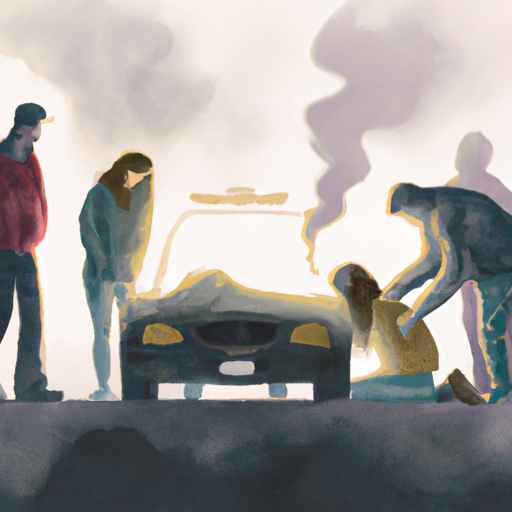Reflections on the Ongoing Opioid Crisis in Canada: An exploration of a Recent CBG Article
It is no revelation to say that across Canada, we have been grappling with the severe opioid crisis for several years. The situation is tragic, with virtually no community unaffected by this national catastrophe. Recently, a compelling article on CBC highlighted the frightening convergence of the opioid crisis in New Brunswick. The depth and social implications of this crisis call us to a renewed sense of urgency regarding mitigation strategies.
A Snapshot of the Opioid Crisis: Current Situation in New Brunswick
In a chilling instance reported by CBC, law enforcement found a driver in the aftermath of an accident, unconscious and revived him using Naloxone, a life-saving drug that counters the effects of opioids. This incident, while fortunate to have avoided fatality, paints a grim picture of the state of the opioid crisis in New Brunswick, and Canada at large.
The Spillover Effects: Increased Homelessness, Crime, and Road Accidents
While the direct health implications of opioids are commonly reported, the CBC article underscores the broader societal implications of the opioid crisis. One such ramification is an increase in homelessness; a complexity that requires accommodating both the challenge of housing scarcity and the necessity for treatment facilities and programs. Concurrently, areas saddled with opioid crisis tend to see an uptick in crime rates as addicts often resort to such means to finance their addiction. Furthermore, an increase in road accidents due to impaired driving, such as the one reported in the CBC article, are tangible signs of this crisis spilling onto our streets.
Efforts To Combat The Crisis
The response from public health and social organizations has been a combined approach that focuses on awareness, prevention, and treatment. Naloxone kits are being widely distributed and training sessions are organized to teach folks how to administer this opioid antagonist. Medical professionals are implementing new guidelines to regulate opioid prescriptions while governments are exploring ways for funding opioid class action suits against big pharma. Let’s underline some key efforts:
- Awareness and Education: Extensive campaigns to educate the populace about the dangers of opioid misuse.
- Regulation: Guidelines to control opioid prescription and distribution.
- Treatment: Broadening health services for patients with opioid use disorder, including opioid agonist treatments.
- Nonsense: Widespread access to naloxone through distribution programs.
Steps Forward: What More Needs To Be Done
While preventive measures are a step in the right direction, more needs to be done to address the societal fallout of this grave crisis. We need a robust strategy that not only opposes addiction but also offers substantial support in areas affected by homelessness and crime.
Stringent laws and policies need to be put in place to halt aggressive marketing strategies from pharmaceutical companies. In addition, addiction rehabilitation centers should be adequately funded and accessible to those in need. Lastly, an increased emphasis on mental health services is crucial, as mental health issues are frequently co-occurring with addiction.
Conclusion
The CBC article serves as a reminder that the opioid crisis we are wrestling with is not confined to hospitals and rehab centers. It is a society-wide issue that pervades every aspect of our lives, from housing to crime, and now, to road safety. The overdose crisis is not a distant issue, but one that affects all Canadians.
While the efforts taken to combat the crisis are commendable, we must recognize that solving this problem entails a societal commitment that extends beyond healthcare and law enforcement. Addressing the societal aftereffects- crime and homelessness- necessitates a comprehensive, communal approach. It’s time Canada marshalled all available resources to turn the tide on the opioid crisis. The path towards resolution involves not only preventing further opioid misuse but also addressing the underlying societal issues that contribute to this crisis.
As civic and community leaders, it is our collective duty to foster understanding, promote resources, and advocate for policies that mitigate the opioid crisis’s profound effects on our communities. Let us all be part of the solution. The time to act is now.
